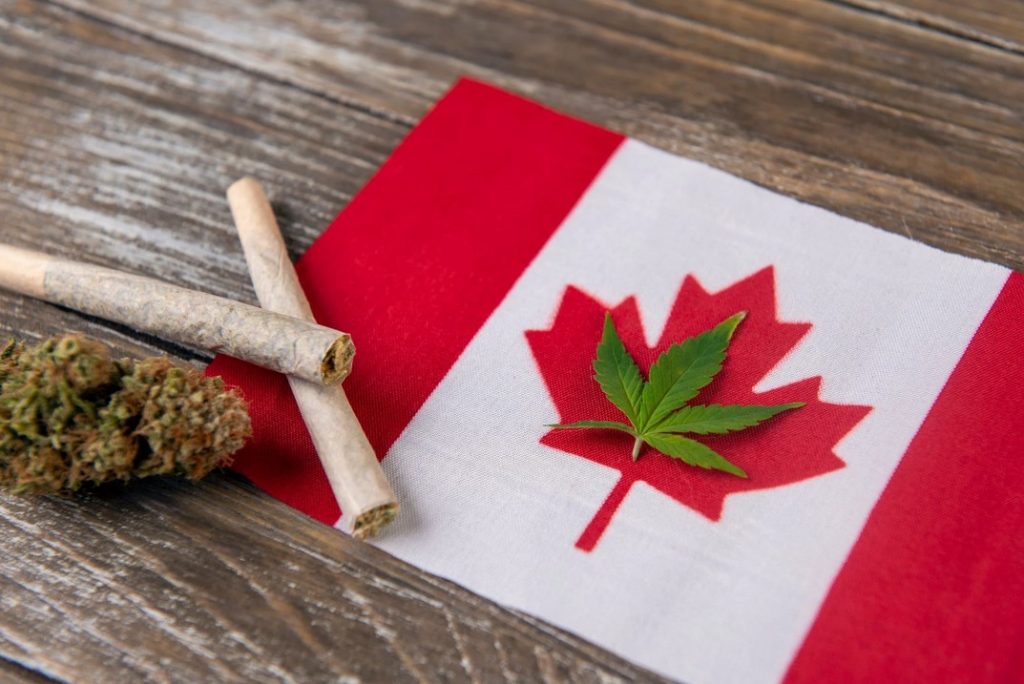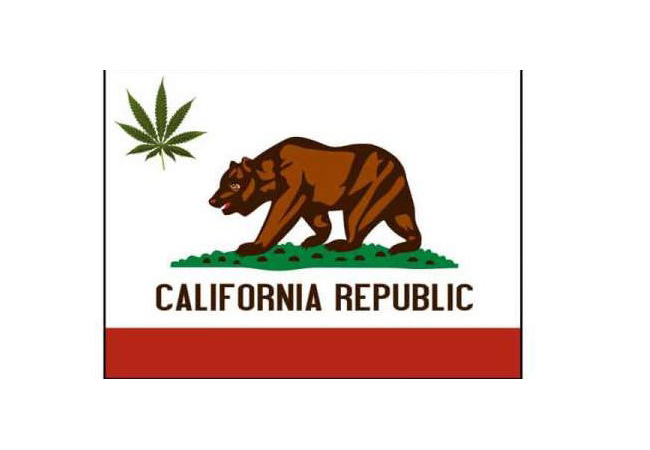Marijuana was banned in Canada back in 1923, and it took almost 80 years before it became legal to use it for medicinal purposes. Canada finally legalized medicinal cannabis in 2001. Public opinion helped shape the next stage of marijuana law in Canada. In late November 2017, the Cannabis Act, Bill C-45, was passed by the House of Commons. In March 2018, it passed second reading in the Senate and on June 18, 2018, the House passed the bill.
It was passed with almost all of the Senate’s amendments, and the Senate accepted the new version of the bill on June 19. October 17, 2018, was a glorious day for marijuana in Canada as it became federally legal around the country. On that day, huge queues formed outside of the nation’s first marijuana dispensaries.
It is wonderful news for Canadians, but what about visitors? Can you travel from a state like Alabama where weed is legal and buy it in Canada? Are you allowed to bring some home? Let’s answer these questions, and more, in the article below.
A Brief Overview of Canadian Cannabis Law

According to the law, adults are legally permitted to purchase, use, possess, and grow recreational cannabis in Canada. However, the legal age and cultivation laws vary depending on the state you travel to. In fact, the minimum legal age is 19 all over Canada except in Alberta and Quebec where it is 18.
The maximum amount you are allowed to possess is 30 grams in all states, but in most locations, you are allowed to have lots more at home. In British Columbia for example, you can possess up to 1,000 grams of weed at home! There is no limit to home possession in Manitoba.
There are even differences in where you are legally allowed to use marijuana. In Prince Edward Island, for example, you are only allowed smoke weed in private residences. In British Columbia, it is banned in cars, around children, and anywhere else where tobacco smoking is prohibited. It is a similar story in Nova Scotia where you can be fined $2,000 for breaking the law.
In general, you can find marijuana for sale in private retail stores, and government online sales. The Canadian Government has set a limit of four plants per household, but it is illegal to grow in Manitoba and Quebec at present.
In case you were wondering, the possession limits in the Cannabis Act relate to dried weed. Here is what a gram of dried weed is deemed the equivalent of according to the Act:
- 1 cannabis plant seed.
- 70 grams of liquid product.
- 0.25 grams of concentrates.
- 15 grams of edibles.
- 5 grams of fresh marijuana.
In other words, you can possess up to 7.5 grams of concentrates, 150 grams of fresh weed, 450 grams of edibles, and 2,100 grams of liquid product.
It is important to note that the only legal purchases are ones made from officially recognized stores. If for example, you sell weed to a friend, you can be charged with a crime. Giving cannabis to a minor is also illegal, and given the differences in legal age limits according to province, this could lead to problems.
If a 19-year old from Quebec traveled to British Columbia and shared marijuana with an 18-year old, he could, in theory, be arrested and sentenced to 14 years in prison.
There are even differences in how you are allowed to transport marijuana according to state. In Nunavut, you can bring cannabis in a car as long as it isn’t ‘easily accessed’ by anyone in the vehicle. In Prince Edward Island, you can keep it in open packaging, but it must be out of reach of other passengers and the driver. In Manitoba, you must keep weed in the trunk of your car while driving!
Finally, there are stiff penalties for anyone caught with more than five nanograms of THC in their blood while driving. Critics have claimed that this arbitrary limit isn’t backed by science and medical marijuana users, who end up developing higher levels of the psychoactive compound in the blood, are more likely to exceed the legal limit.
How Does the Law Apply to Visitors?
Marijuana tourism is expected to skyrocket as weed lovers from all over the world jet to Canada to sample Mary Jane. The application of the Canadian Cannabis Act is especially pertinent to the United States as it shares a huge border with Canada.
The good news is that you are legally allowed to purchase marijuana in Canada when traveling from the United States or anywhere else in the world. You need to obey all Canadian laws regarding sale, possession, cultivation, and use. In other words, if you are at least 19 years of age, you can safely buy up to 30 grams of weed and consume it in a private residence, no matter what part of Canada you are in.
It gets a little more confusing when it comes to where marijuana use is permitted. As we already mentioned, you can smoke weed anywhere that tobacco use is allowed in states such as Nova Scotia. However, in Ontario and other states, you can only use it in private residences.
If you are used to the strict regulations in American airports, you will be happy to learn that it is possible to legally carry marijuana on a flight between two Canadian cities, as long as you obey all possession and age laws. This means you can bring an ounce of weed on a flight from Vancouver to Montreal for example. You can also pack cannabis in your checked bag on domestic flights. You are even allowed to mail marijuana from one Canadian town to another!
Before you get too comfortable, remember this: What happens in Canada stays in Canada! In other words, you are NOT allowed to transport marijuana from Canada to the United States or any other country. This is the case even if you live in a state such as California where recreational marijuana is legal.
It is 100% illegal to bring marijuana across international borders; so, we’re afraid you can’t bring Canadian weed to Los Angeles or Montevideo. To be honest, it is hard to fathom why someone would risk transporting weed across an international border when it is legal at home! It also doesn’t matter if you do it unintentionally or if it is for medical purposes.
As far as Canadians traveling to the United States are concerned, admitting to previous cannabis use at the border could result in you being denied entry to America. U.S. Customs and Border Protection (CBP) enforces federal laws. According to statistics from the Department of Homeland Security (DHS), around 22,000 Canadians were refused entry to the U.S in 2017. It is believed that a significant number of cases related to individuals involved in the Canadian marijuana industry.
Reducing criminal activity
Statistics Canada reports that in 2017, almost 48,000 cannabis-related drug offences were reported to police. The majority of these (80%) were possession offences. A criminal record resulting from a cannabis offence, even a minor possession charge, can have serious and lifelong implications for the person charged. In allowing the production and possession of legal cannabis for adults, the Act helps keep Canadians who consume cannabis out of the criminal justice system, reducing the burden on the courts.
Criminal penalties
Cannabis offences target those acting outside of the legal framework, such as organized crime. Penalties are set in proportion to the seriousness of the offence. Sanctions range from warnings and tickets for minor offences to criminal prosecution and imprisonment for more serious offences. Some offences specifically target people who make cannabis available to youth.
| Offence | Penalties |
| Possession over the limit | tickets for small amounts up to 5 years less a day in jail |
| Illegal distribution or sale | tickets for small amounts up to 14 years in jail |
| Producing cannabis beyond personal cultivation limits | tickets for small amounts up to 14 years in jail |
| Producing with organic solvents | up to 14 years in jail |
| Taking cannabis across Canada’s borders | up to 14 years in jail |
| Giving or selling cannabis to a person under 18 | up to 14 years in jail |
| Using a youth to commit a cannabis-related offence | up to 14 years in jail |
Further penalties related to cannabis-impaired driving are also included in Canada’s impaired driving legislation, along with impairment rules for other drugs such as:
- LSD
- heroin
- cocaine
- psilocybin (magic mushrooms)
More information
Please visit Cannabis in Canada for more information on cannabis:
- safety risks
- health effects
- transportation
- licensed production
If you plan to travel to Canada, make sure you are up to date with the individual cannabis laws of each state. Much like America, issues such as legal age, possession limits, and areas where you can consume weed vary from state to state. The 30-gram limit is enforced in each state, but in many locations, you can store more in a private residence.
The legal age is 19 in all but two states, so bear this in mind before you travel. It is illegal to transport weed across an international border for any reason so don’t even think about bringing any marijuana with you as you leave Canada. Here is a quick overview of the potential sentences for different violations of the Canadian Cannabis Act:
- Possession over the limit: Maximum prison sentence of 5 years.
- Illegal sale or distribution: Maximum of 14 years in prison.
- Producing an amount of marijuana beyond the legal limits or with the use of combustible solvents: Maximum prison term of 14 years.
- Taking marijuana across the Canadian border: Prison term of up to 14 years.
- Using a youth to commit a marijuana-related offense, or giving/selling it to a minor: Up to 14 years in prison.
As a final point, it is hoped that the Canadian government will soon introduce legislation to pardon individuals previously convicted of possessing less than 30 grams of marijuana. According to Cannabis Amnesty, an activist group, around 500,000 Canadians have a criminal record due to possession of a small amount of a drug that is now legal. If and when the amnesty happens, it will be a refreshing case of a government showing common sense.

Our creator instructs us to be sober minded. The use of alcohol or drugs to accomplish the opposite is a dance with the devil. You only have to look at the destruction left behind by the use of Alcohol and Drugs to see the truth. I’ve already witnessed in our family how marijuana was a gateway drug to a addictive behaviour that eventually destroyed a human life. The blood of that person is on Prime Minister Justin Trudeau. It is indeed a bad piece of legislation.